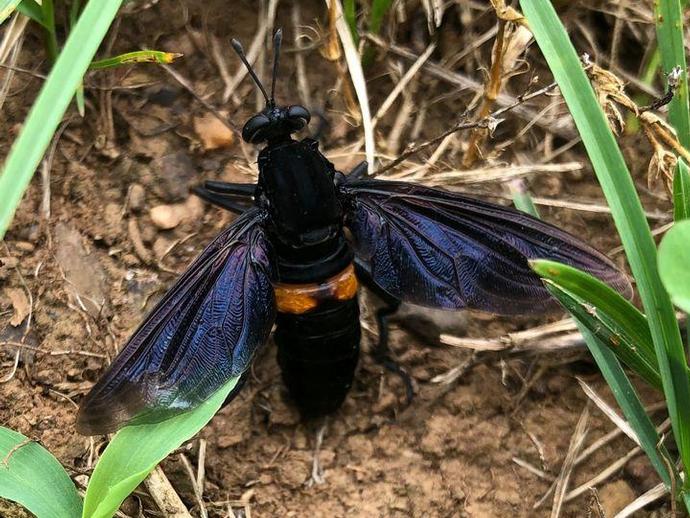June 26, 2021
We're reaching into the archives for today's #BenInNature update presented by our friends at Carter Bank & Trust! The following post was originally published on July 5, 2020.
At first glance, this insect looks like a wasp, but it's actually a fly! This is Mydas clavatus, the clubbed Mydas fly.
Mydas flies are a comparatively small family; there are 471 described species worldwide. They're generally large in size, and the family even contains the largest fly known to man: Gauromydas heros, a South American species with a four-inch wingspan!
Despite their size and intimidating appearance, Mydas flies are perfectly harmless. While this species has evolved to resemble a spider wasp -- and will even jab its abdomen in an imitation of stinging -- it doesn't have a stinger, and it also can't bite. The larvae of these flies feed on beetle larvae, while the adults only feed on pollen and flower nectar. If you spot one in your garden, have no fear!
Thanks to VMNH Associate Curator of Invertebrate Zoology Dr. Kal Ivanov for the identification!
ABOUT #BenInNature
Social distancing can be difficult, but it presents a great opportunity to become reacquainted with nature. In this series of posts, Administrator of Science Ben Williams ventures outdoors to record a snapshot of the unique sights that can be found in the natural world. New updates are posted Monday - Friday, with previous posts highlighted on the weekends. This series of posts is made possible thanks to the support of VMNH Corporate Partner Carter Bank & Trust (www.cbtcares.com).
NATURE PHOTO IDENTIFICATIONS
If you discover something in nature that you would like help identifying, be sure to message us right here on Facebook with a picture (please include location and date of picture) and we'll have our experts help you identify it!

 Hours & Admissions
Hours & Admissions Directions
Directions

